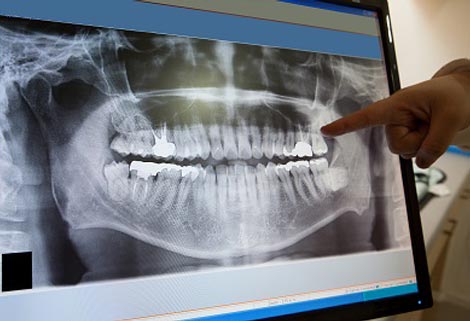
17
Oct
What is Considered Oral Surgery?

Oral surgery successfully treats many different health conditions and diseases. Your dentist may also recommend oral surgery to correct the appearance of teeth and the surrounding bone structure. While the prospect of oral surgery can seem daunting, you will likely receive sedation to ensure comfort during the procedure. Here are some common types of oral surgery and what you can expect when visiting your oral surgeon.
Endodontic Surgery
Endodontic surgery is an effective alternative to extracting a damaged or infected tooth. Among other procedures, root canal therapy is an endodontic treatment that involves removing the infected pulp and surrounding nerve tissues. Replantation, retreatment, removing one or more roots, repairing an injured root, and apicoectomy are all considered endodontic surgeries.
An apicoectomy is a common procedure that works well when standard root canal treatment is impractical or could result in further complications. During an apicoectomy, the tip of the tooth’s root is removed, and the area is carefully cleaned. Next, the canals are filled with a material such as composite resin or dental cement.
Periodontal Surgery
The purpose of periodontal surgery is to restore the damaging effects of periodontal disease on gum tissues and the supporting bone structure around the teeth. Various surgical procedures can help minimize symptoms and rebuild bone or tissue loss. Some common periodontal surgeries include:
- Bone Grafting: When periodontitis results in bone loss, a bone graft can encourage new growth. Bone for the graft may be removed from elsewhere in the body, provided by a viable donor, or crafted from synthetic materials.
- Flap Surgery: Professionals may recommend flap surgery when non-invasive treatments for gum disease are ineffective. This procedure involves making an incision along the gum line to access unhealthy gum tissue around the roots of teeth. After removing the swollen or infected tissue, the incision is closed with sutures.
- Guided Tissue Regeneration: When pockets of bacteria around the base of teeth cause bone deterioration, guided tissue regeneration can stimulate new growth. The surgeon makes an incision to access and clean the affected area. Next, a mesh layer is positioned into place to protect the area as new bone grows.
- Tissue Grafting: This oral surgery restores the soft tissues along the gum line. In most cases, donor tissue is taken from the roof of the mouth and sutured to the affected area. Tissue grafting is a common approach to addressing issues with a receding gum line.
Extractions
Extractions are often performed on wisdom teeth before they can cause damage to surrounding teeth. It’s usually best to have wisdom teeth removed early in life to prevent complications. When teeth begin to push against one another, it can create overcrowding, misalignment, and infection. It may also be necessary to remove some teeth to make room for future orthodontic work.
Dental Implant Surgery
This surgery replaces missing teeth with artificial replicas that blend in seamlessly with other teeth. Dental implant surgery consists of two stages. First, a titanium post is surgically placed into the jaw to serve as an anchor for a custom prosthesis. Once the implant has healed, a crown, bridge, or denture can be attached.
Since the bones supporting the teeth require stimulation to continue to grow, missing teeth can lead to bone deterioration. Dental implant surgery can help reduce further bone loss by restoring normal function and improve the aesthetics of your smile.
Sleep Apnea Treatment
Individuals with sleep apnea experience intermittent breathing during sleep, causing problems like snoring, insomnia, and headaches. Corrective surgery can alleviate complications with sleep apnea by removing tissue near the roof of the mouth or back of the throat. Surgery is something to consider for those who cannot find relief with the assistance of CPAP devices or other dental appliances.
Restoring Your Optimal Oral Health
Surgery can address a variety of oral health concerns. Speak with your periodontist or dental specialist about exploring oral surgery treatment options. A healthy smile is a beautiful smile, and oral surgery may be the solution to restoring both!
The post What is Considered Oral Surgery? first appeared on Dental Signal.
Share this Article

Dr. phan

Dr. Abel
Husband and wife duo Drs. Chuong Phan and Anna Abel lead the Abel, Phan, and Associates dental team.
Dr. Phan is a Howard University College of Dentistry graduate and has practiced for over 20 years. His favorite clinical procedures are orthodontic and endodontic treatments, including root canal therapy. He has been trained in many prestigious institutes. Dr. Abel graduated from the University of Maryland School of Dentistry and has over 20 years of experience. Her favorite procedures are cosmetic services like veneers, implants, and oral surgery. She has trained with top-level organizations.
Both doctors are regular volunteers at Northern Virginia Dental Clinic, providing care to low-income patients, for which they have received many honors. They have also volunteered to help disadvantaged communities, especially children, through many foreign missions.

